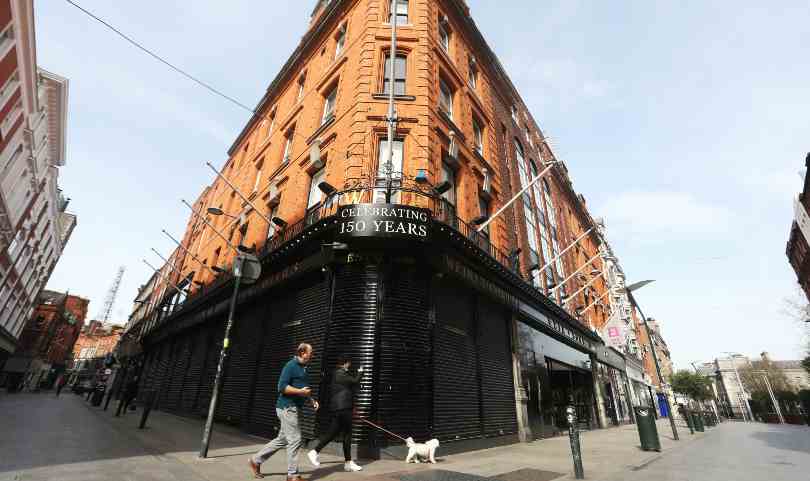Ireland will tumble into recession this year on account of the coronavirus crisis, says an analysis from the Economic and Social Research Institute.
ESRI's forecast is based on public health lock-down measures staying in place for a 12-week period and that the economy recovers somewhat afterwards. On that basis, the ESRI guess is that the Irish economy will shrink by 7.1% in 2020.
Consumption, investment and net trade will all fall sharply; households will cut spending, firms will cancel or postpone investment and external demand for Irish goods and services will fall.
The workforce is set to face the largest single-quarter shock in living memory. ESRI expects the unemployment rate to increase to 18% for Q2 up from 4.8% in the previous quarter, as over 300,000 people lose their jobs.
“It must be noted that this current scenario may turn out to be too benign. As events are unfolding rapidly, we will revisit these scenarios more frequently than our traditional release pattern,” ESRI warns
The team that produced the Economic Commentary consists of Kieran McQuinn, Conor O’Toole, research professor and senior research officer respectively, Matthew Allen-Coghlan and Cathal Coffey, both research assistants.
The report states: "There will be significant pressure on the public finances. The combination of the extra expenditure on health and social welfare allied to the sharp decline in certain taxation revenues means a deficit of nearly 4.5% is now likely to occur in 2020 and could be higher.
“Greater expenditure may yet be required in order to meet this threat to public health, and the path to recovery for the Irish economy is complicated by its extremely open nature. While the domestic authorities may be successful in limiting the spread of the virus, the performance and recovery of the Irish economy will now also depend on the effectiveness with which other countries deal with Covid-19.
"Under our scenario we also assume that net migration into Ireland declines significantly during the course of 2020," the report states. "Policy interventions that ensure inherently viable businesses survive the crisis, and that secure income levels for those households most affected, will lower the impact of the crisis on the labour market. However, the increase in unemployment could be greater if economic activity does not return to normal in the latter half of the year.”
The 18% rate of unemployment forecast is greater, and will be reached much faster, than the 14% reached at the height of the financial collapse of 2008-2009.
The Economic Commentary is available in full here.
Photo: RollingNews.ie













